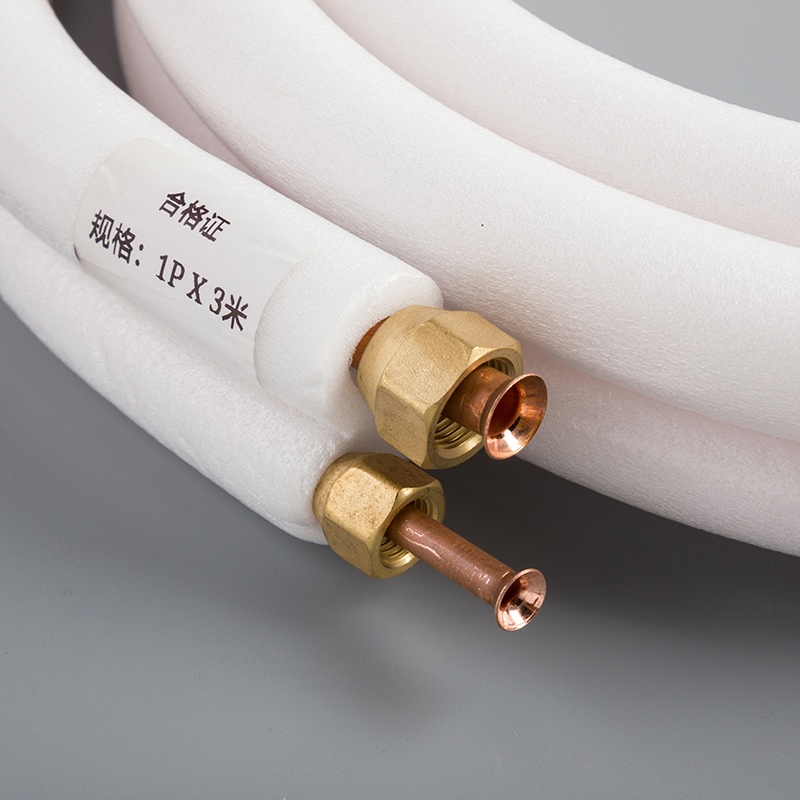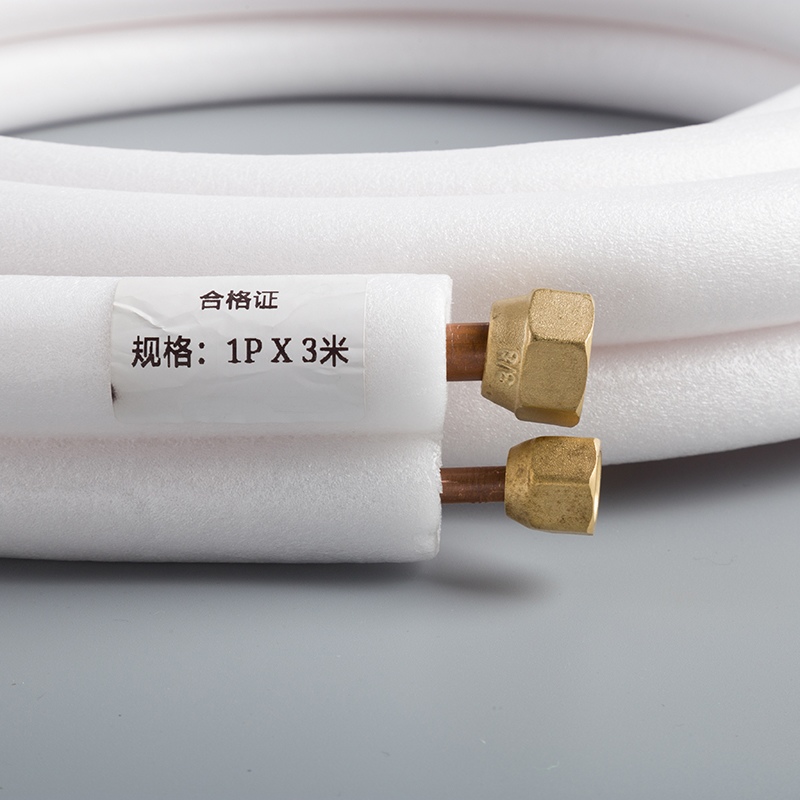Unraveling Insulated Copper Wires: A Beginner's Guide

Insulated copper wires play a vital role in various applications, shielding the conductive copper core with materials like plastic or enamel. The global Copper Wire market is projected to grow significantly, driven by infrastructure projects and the increasing demand for electrification. This beginner's guide aims to unravel the significance of insulated copper wires, exploring their properties, uses, and benefits in different industries. By understanding the essence of insulated copper wires, readers can grasp their importance and make informed decisions in selecting the right wiring solutions.
What is Insulated Copper Wire?

Insulated copper wire consists of a Copper Core enveloped by various Insulating Materials. The copper core, known for its exceptional conductivity, serves as the foundation for the wire's electrical properties. Surrounding this core are insulating materials like plastic or enamel, which shield the copper from external elements. These materials play a crucial role in preventing environmental factors from affecting the wire's performance.
The properties of insulated copper wires are defined by their composition and design. Electrical Conductivity is a key feature of these wires, allowing seamless flow of electric current without significant resistance. This property ensures efficient energy transmission in various applications. Moreover, insulated copper wires exhibit remarkable Durability and Protection due to the insulating layers that safeguard the copper core from damage.
When considering insulated copper wires, it is essential to acknowledge their significance beyond mere conductors. These wires provide a secure pathway for electricity while offering resilience against external influences. By understanding the composition and properties of insulated copper wires, individuals can appreciate their role in ensuring safe and reliable electrical connections.
Uses and Benefits
Common Applications
Insulated copper wires find widespread use in various industries due to their exceptional properties. Understanding the common applications of insulated copper wires sheds light on their versatility and importance in different sectors:
Power Transformers
Power transformers are crucial components in electrical systems, facilitating the efficient transmission of electricity across long distances. Insulated copper wires play a vital role in these transformers, ensuring reliable power distribution. The high electrical conductivity of copper enables seamless energy transfer, minimizing power loss during transmission.
Motors and Amplifiers
Motors and amplifiers rely on insulated copper wires for their optimal performance. Insulated copper wires provide a stable connection that enhances the efficiency of motors, translating electrical energy into mechanical motion. Similarly, amplifiers benefit from the superior conductivity of copper wires, delivering clear and amplified sound signals without interference.
Advantages of Insulated Copper
The advantages of using insulated copper wires extend beyond their basic functionality. Exploring these benefits highlights why insulated copper is preferred in various applications:
Safety
Safety is paramount in any electrical system, and insulated copper wires offer enhanced protection against potential hazards. The insulating materials surrounding the copper core prevent short circuits and reduce the risk of electrical fires. By maintaining a secure environment for electric currents, insulated copper wires ensure the safety of both equipment and individuals.
Efficiency
Efficiency is a key factor in modern technological advancements, and insulated copper wires contribute significantly to improving energy efficiency. The low resistance provided by copper allows for minimal energy loss during transmission, resulting in cost-effective operations. By choosing insulated copper wires, industries can enhance their overall efficiency while reducing energy consumption.
Comparison with Uninsulated Wire

When comparing insulated copper wires with uninsulated wire, several key differences emerge that influence their suitability for different applications.
Conductivity
Insulated copper wires are coated with insulator materials such as plastic or enamel to protect the wire from the surrounding environment. This coating provides additional safety and protection against interference, ensuring stable electrical connections in various devices and systems. On the other hand, uninsulated wire may be preferred for its increased conductivity, allowing for efficient energy transfer without the insulating barrier present in insulated copper wires.
Cost
The cost factor also plays a significant role in choosing between insulated copper wires and uninsulated wire. Insulated copper wires are widely used in inductors, transformers, motors, speakers, electromagnets, and many other electrical devices due to their durability and protective coating. While insulated copper wires offer enhanced safety and longevity, they tend to be slightly more expensive than uninsulated wire. In contrast, uninsulated wire is more cost-effective but lacks the protective features of insulated copper wires.
Choosing the Right Wire
When selecting between insulated copper wires and uninsulated wire, it is crucial to consider specific application needs and environmental factors:
Application Needs
The type of device or system where the wire will be used dictates whether insulated copper or uninsulated wire is more suitable. For applications requiring high levels of safety and protection against external elements, such as power transformers or electromagnets, insulated copper wires are the preferred choice. Conversely, applications that prioritize cost-effectiveness and uncompromised conductivity may opt for uninsulated wire.
Environmental Factors
Environmental conditions also play a vital role in determining the right type of wire to use. Insulated copper wires are designed to withstand humidity, moisture, temperature variations, and other environmental factors that could compromise performance. In contrast, uninsulated wire is more susceptible to damage from these elements due to its lack of protective coating.
To conclude, insulated copper wires are essential for safety measures, preventing damage to electrical systems in households. The use of insulated wire in electromagnets enhances safety and shields against interference. Considering the versatility and protective features of insulated copper wires, it is evident that they are indispensable in various applications. Moving forward, prioritizing the adoption of insulated copper wires in electrical installations will ensure enhanced safety and efficiency, aligning with evolving technological demands.
See Also
Simple Solutions for Copper Pipe Coil Problems
Complete Manual for Purchasing Copper Pipe Coils
The Definitive Handbook for Purchasing Copper Pipe Coils


